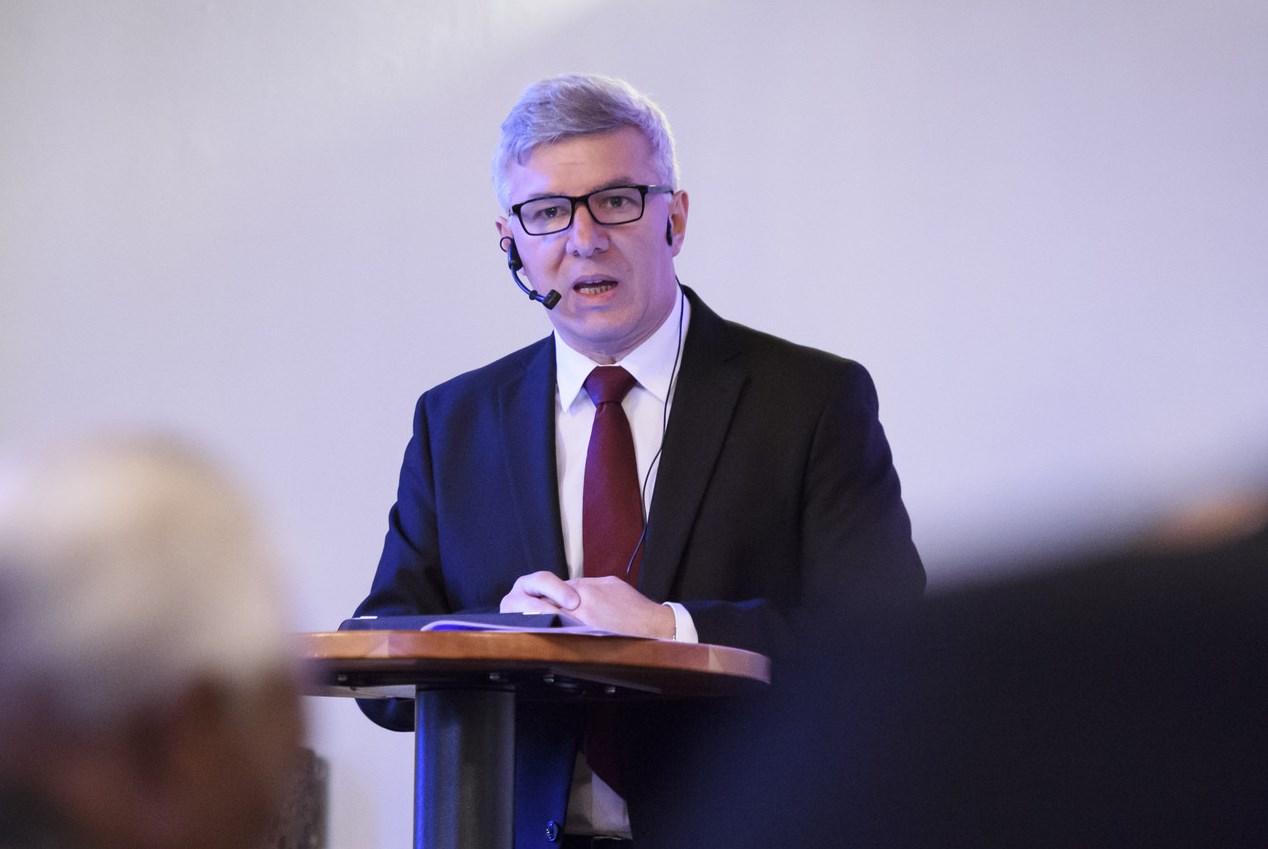To build just and sustainable peace, engaging churches, ecumenical organizations and civil society, the World Council of Churches (WCC) has launched an Ecumenical Peace Advocacy Network (EPAN) at its conference held from 1-5 December in Sigtuna, Sweden. The work of the EPAN aims to turn into concrete actions the theme “pilgrimage of justice and peace” described in a call issued by the WCC Busan Assembly in 2013.
The WCC consultation and workshop on Peace-building and Advocacy for Just Peace was hosted by the Church of Sweden, the Uniting Church in Sweden, and the Christian Council of Sweden. More than 80 ecumenical advocacy experts, church leaders, as well as civil society and United Nations partners from 37 different countries, took part in the event.
“This consultation intended to create programme synergies and develop collaboration methods, sharing best practices and lessons learned in peace-building, conflict prevention and advocacy for peace,” said Rudelmar Bueno de Faria, WCC representative to the UN in New York.
The workshop focused on a framework for advocacy for peace, as well as practical strategies and tools required to support coordinated international advocacy for a peaceful world. Such a strategy would be employed by ecumenical organizations, including the WCC and its member churches, the ACT Alliance members, national councils of churches and other partners from civil society.
Bueno de Faria added: “The consultation and workshop have been seen by the WCC as part of the wider pilgrimage of justice and peace, and have served as a base for an intentional process to equip the ecumenical movement to play a more meaningful and effective role in advocacy for just peace”.
“As a follow-up to the consultation and workshop, two events will be organized in 2015 in Africa and the Middle East with the purpose of preparing advocacy strategies and plans to promote just peace, reconciliation and conflict prevention,” he added.
Bueno de Faria said: “The new Ecumenical Peace Advocacy Network is a great opportunity for churches to act collectively to address issues related to peace on a global level. Churches and ecumenical organization have the responsibility to mobilize themselves on specific peace issues and influence processes that brings about lasting and just peace”.
Bueno de Faria underlined that the events brought together passionate and committed peace-builders who have shared experiences and discerned together the best way to promote peace, also considering important aspects such as gender-based violence, youth and women’s engagement in peace-building and interfaith cooperation for peace”.
“We need each other, if we want to see global changes. We need networking on prioritized global peace issues and effective advocacy work to promote peace among the peoples,” said Geronimo Desumala III, advocacy officer at the WCC UN office in New York.
Bueno de Faria concluded, “The engagement of the ecumenical movement in peace-building and advocacy for peace is sine-qua-non to promote and ensure peace with justice. The WCC’s understanding of the pilgrimage of justice and peace is the framework which will inform our actions for advocacy for just peace.”
Christians are called to be peacemakers and to build just peace (WCC news release of 2 December 2014)








